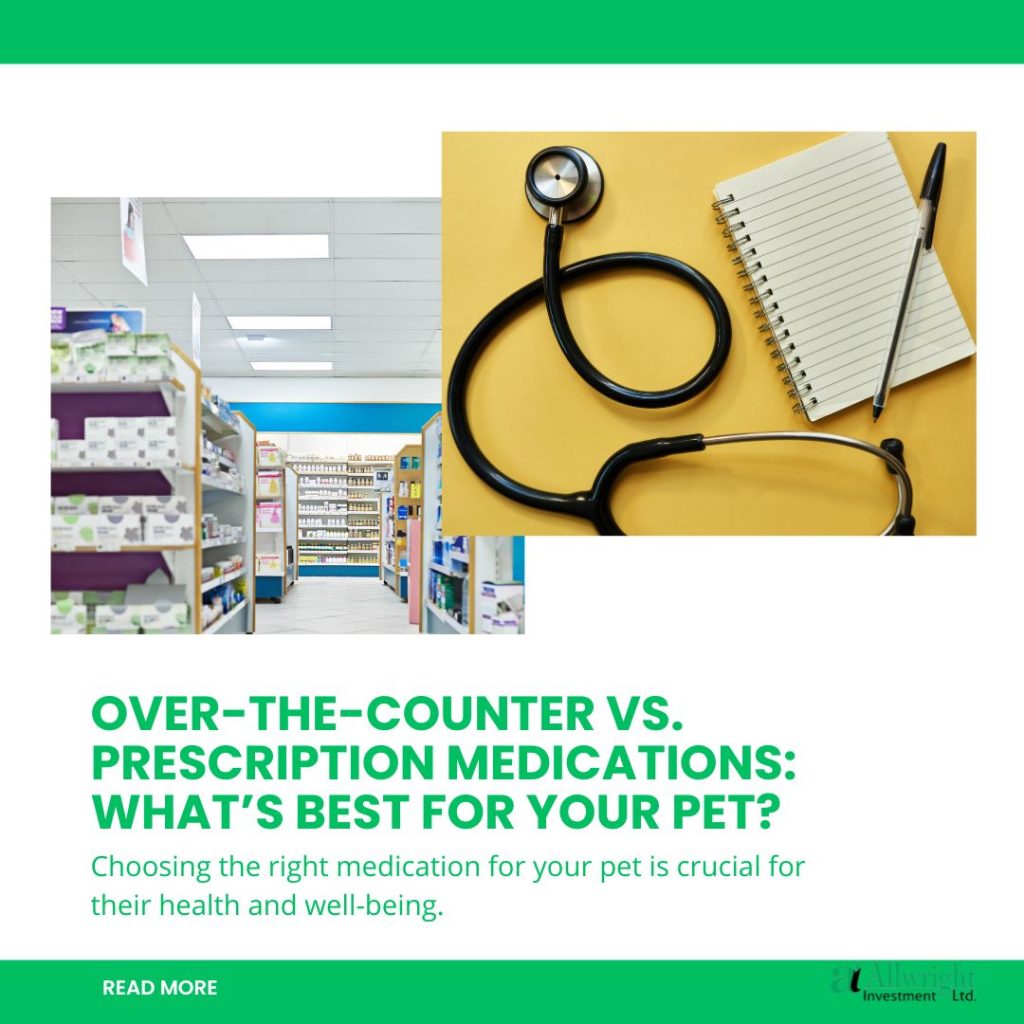
Choosing the right medication for your pet essential for their health and well-being. With numerous options available, it is important to understand the difference between over-the-counter (OTC) and prescription medications. Let’s look at these two types of medications, their benefits and drawbacks, and how to determine the best choice for your pet.
What are Over-the-Counter Medications (OTC)?
OTC medications are drugs that can be purchased without a prescription. These medications are typically used to treat minor health issues and are considered safe when used as directed.
Benefits:
- Accessibility: Easily available at pharmacies, pet stores, and online.
- Cost-effective: Less expensive than prescription medications.
- Convenience: No need for a vet visit to obtain them.
Disadvantages:
- Limited Scope: May not be effective for serious or chronic conditions.
- Self-diagnosis Risk: Without professional guidance, incorrect self-diagnosis and inappropriate use can occur.
- Side Effects: Potential for adverse reactions if not used correctly.
What are Prescription Medications?
Prescription medications require authorization from a licensed veterinarian. These drugs are used to treat more serious conditions and are tailored to meet the specific needs of your pet.
Benefits:
- Targeted Treatment: Designed to address specific medical conditions with precision.
- Professional Guidance: Prescribed by a veterinarian, ensuring appropriate use and dosage.
- Monitoring: Regular follow-up ensures the medication is effective and adjusts as needed.
Disadvantages:
- Cost: Typically more expensive due to the need for a veterinary consultation and the cost of the medication.
- Accessibility: Only available through a veterinarian or licensed pharmacy.
- Time-Consuming: Requires a visit to the vet, which can be time-consuming and stressful for your pet.
How to Decide What’s Best for Your Pet
When deciding between OTC and prescription medications, consider the following factors:
- Severity of the Condition: For minor issues like mild allergies or minor skin irritations, OTC medications may suffice. For serious or chronic conditions, always consult a vet.
- Professional Diagnosis: Always seek a professional diagnosis for your pet’s health issues. Self-diagnosis can lead to improper treatment.
- Safety and Efficacy: Prescription medications are tested rigorously and are proven to be safe and effective for specific conditions.
- Follow-Up Care: Prescription medications often come with follow-up care from your vet, ensuring your pet’s condition is monitored and managed effectively.
Both OTC and prescription medications have their place in pet healthcare. Understanding their differences and knowing when to use each type is key to ensuring your pet’s health and well-being. Always consult with your veterinarian to determine the best course of action for your pet’s specific needs.
Invest in Allwright Limited today!

Leave a comment
You must be logged in to post a comment.